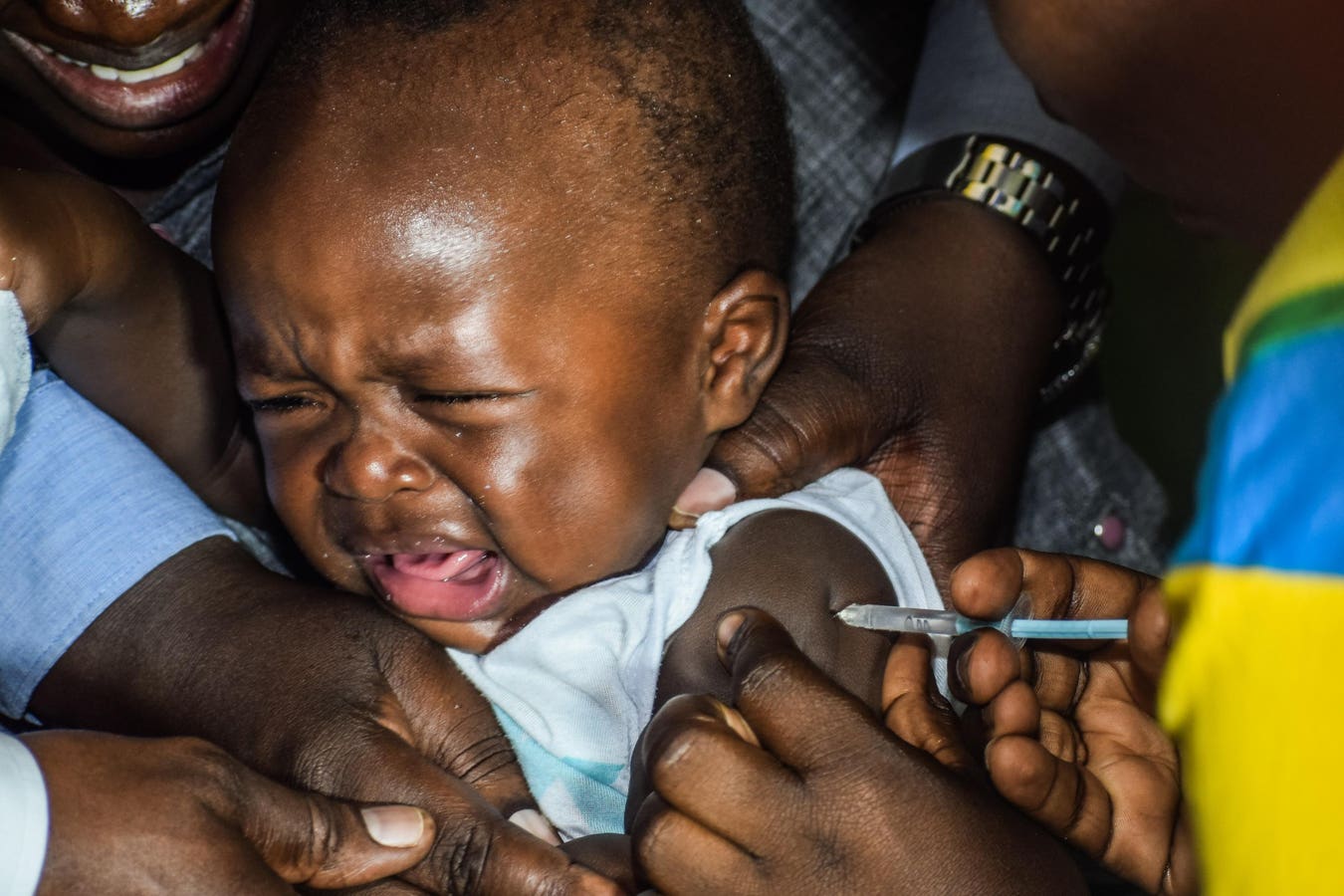This week Cameroon became the first African country to receive the Mosquirix malaria vaccine for use as a fully tested preventive in a wide range of healthcare settings. A shipment of more than 331,000 doses arrived yesterday at the airport in the capital Yaoundé. The vaccine underwent a four-year long successful testing program in children in Ghana, Kenya and Malawi.
Malaria is a mosquito-borne disease which carries with it a particularly high disease burden in children in Africa. In the 20th century alone, malaria claimed between 150 and 300 million lives globally. Annually, nearly 600,000 children die from the communicable disease worldwide, more than 500,000 of which are in Africa. The vast majority of victims are younger than five years old.
Until the late 1990s, malaria was considered one of the world’s neglected tropical -diseases. At that time, the World Health Organization profiled the “big three” infectious diseases, HIV, tuberculosis and malaria, as the most deadly “poverty-related” diseases in the developing world.
This led to the creation of the Global Fund to Fight AIDS, Tuberculosis, and Malaria which mobilized substantial resources to advance prevention and treatment of all three diseases. The work of the Global Fund along with a commitment of research and development funds for malaria have borne fruit.
Mosquirix, RTS, S/AS01, is a recombinant protein-based vaccine. The vaccine was originally developed in 1987, but it took more than 30 years for a pilot implementation program to start up in endemic countries in 2019.
This first-generation malaria vaccine demonstrates modest efficacy against the illness and holds promise as an important public health tool, especially for children in high-transmission areas where mortality is high.
The WHO awarded prequalification to Mosquirix in 2021, which meant that United Nations agencies such as UNICEF could procure the vaccine in partnership with Gavi, the Vaccine Alliance, and eligible countries.
As of 2022 the vaccine had been given to approximately one million children living in areas with moderate-to-high malaria transmission as part of an extensive testing program.
But now Cameroon has become the first African country to begin to deploy Mosquirix as a fully tested preventive in numerous healthcare settings across the nation. This first consignment of vaccines will be distributed to 42 of the nation’s 203 health districts. And the first jabs are expected to be administered within a month and will mainly be administered to children under the age of five.
The Mosquirix vaccine will be further rolled out next year in nine countries where malaria is endemic. In addition, about 18 African countries are set to receive 18 million doses over the next two years. By 2026 demand across Africa may reach 40 to 60 million doses.
Vaccines such as Mosquirix save children’s lives. In the areas where Mosquirix was tested, infant mortality fell by 13%. Clinical researchers and healthcare workers expect it to save tens of thousands of children’s lives.
In the meantime, the WHO has also recommended a second malaria vaccine. This vaccine, R21/Matrix-M, is less expensive and will be available by the middle of next year.
The beginning of mass administration of an approved malaria vaccine represents an important global public health measure, which will help reduce the disease burden and save lives.
Read the full article here





